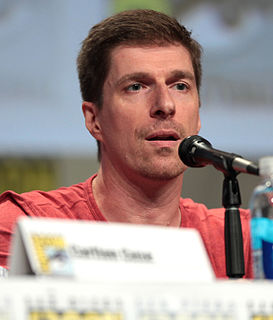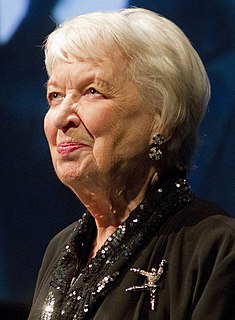A Quote by George C. Wolfe
A lot of '20s musicals were a hodgepodge of melodrama, mixed with operetta and romance, and then some sense of modernism and some sense of irreverence.
Related Quotes
Talking about the fact that I get depressed or that I've had some suicidal issues in my life is not easy. I don't know of many comedians who are going all in on that. In some sense, I think I've maybe sacrificed some momentum doing that. In another sense, I'm in a place where if I can talk about that and if it helps some kid in a way that gives them some help that wasn't available to me when I was a kid, then I gotta do that. Put being a good person first. If you have a platform, use it for stuff that's noble and good and worth putting out in the world.
It is not easy to convey a sense of wonder, let alone resurrection wonder, to another. It’s the very nature of wonder to catch us off guard, to circumvent expectations and assumptions. Wonder can’t be packaged, and it can’t be worked up. It requires some sense of being there and some sense of engagement.
The moment in the account of Adam and Eve in the book of Genesis is when they realize they're naked and try and cover themselves with fig leaves. That seemed to me a perfect allegory of what happened in the 20th century with regard to literary modernism. Literary modernism grew out of a sense that, “Oh my god! I'm telling a story! Oh, that can't be the case, because I'm a clever person. I'm a literary person! What am I going to do to distinguish myself?...a lot of modernism does seem to come out of a fear of being thought an ordinary storyteller.
I suppose everyone continues to be interested in the quest for the self, but what you feel when you're older, I think, is that ... you really must make the self. It is absolutely useless to look for it, you won't find it, but it's possible in some sense to make it. I don't mean in the sense of making a mask, a Yeatsian mask. But you finally begin in some sense to make and choose the self you want.
Donald Trump understands sense of belonging. And a lot of people think globalization, any time you make any particularity, you're sort of offending some other group. And a lot of people in this country think they belong to America anymore, and he at least appeals to some sense of belonging. I like the idea that we belong to Western traditions, so I'm glad he appeals to that sort of thing.
I first got a sense of that idea of nodality - but I didn't use the word back then - with 'The Missing of the Somme': that sense of a particular place in a landscape or on a map having some kind of tremendous power to draw us to itself... that made me conscious, and since then, really, it has been an abiding concern of mine.







































